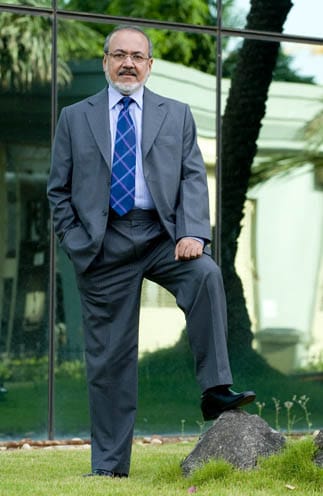
Habil Khorakiwala: Hard to Swallow
Habil Khorakiwala has stepped down as managing director of pharma firm Wockhardt in the wake of a debt burden and forex losses. He now retains only the chairmanship. Forbes India asks him about the tumult within the company
Name:
Habil Khorakiwala
Title:
Stepped down as Wockhardt managing director but continues as the chairman
Age:
66
Career:
After his masters degree, his father handed him the control of Worli Chemical Works, which was later incorporated as Wockhardt Ltd
Education:
He has a masters degree in pharmaceutical science from Purdue University and a degree from Harvard Business School.
Interests:
Reading, swimming and interior decoration
Did the three acquisitions Wockhardt made back-to-back initiate all the cash woes you are facing today?
We did not make the mistake other competitors did by paying a premium price. Our acquisitions were essential for our business growth and the proof is already there to see. Morton Grove [acquired in 2007] has proved to be a wonderful acquisition, aiding us to make profits in the US market for the first time. What went really wrong was some of our bets on our currency hedging strategy. It was the only reason we are in financial trouble.
You were so conservative that you shunned debt until five years ago. Then, how did you get sucked into the derivatives vortex?
We have been hedging our currency risks as more and more of our income came from overseas operations. Our strategy even made us a decent bit of money in some years. Late 2007, a lot of things changed very quickly in the international financial markets. We quickened our pace of hedging in newer currencies. There were times we wanted to sell our positions but the banks would stop us to get better margins. At times, we lost because we relied on the banks’ advice and at others, we held to our views.
Now that the corporate debt restructuring (CDR) process has been initiated, will it get in the way of your operational freedom?
I had already said a year ago, after our third acquisition, that we won’t be acquiring any more for a while. All our major capital expenditure is nearly done — the biotech facility expansion and the SEZ near Aurangabad for making sterile injections will be up and running by December 2009.
The CDR process at Wockhardt requires you to bring additional capital and cash for exigencies, to cover up any shortfall in revenue or losses from open derivative contracts.
The bankers who were a part of the derivative transactions understand that some of these contracts eventually were done in good practice and therefore, have some value in them. So, we will have to systematically reduce our positions in derivatives rather than book losses for the sake of the CDR process. To bring the cash, we already have shareholder approval to divest a stake in our hospital business. We are open to either a private equity investor or a strategic partner. We have many leads and are likely to close in on one soon.
Will you sell any new acquisitions to salvage the debt situation faster? How do plan to emerge stronger?
Selling any of our recent acquisitions is not in our radar. Since the CDR process will space out our repayments and we generate close to Rs. 800 crore in cash each year, we should be able to sail past without divesting any more of our business. You will see that we will be out of the woods within two to three years.
(This story appears in the 17 July, 2009 issue of Forbes India. To visit our Archives, click here.)















